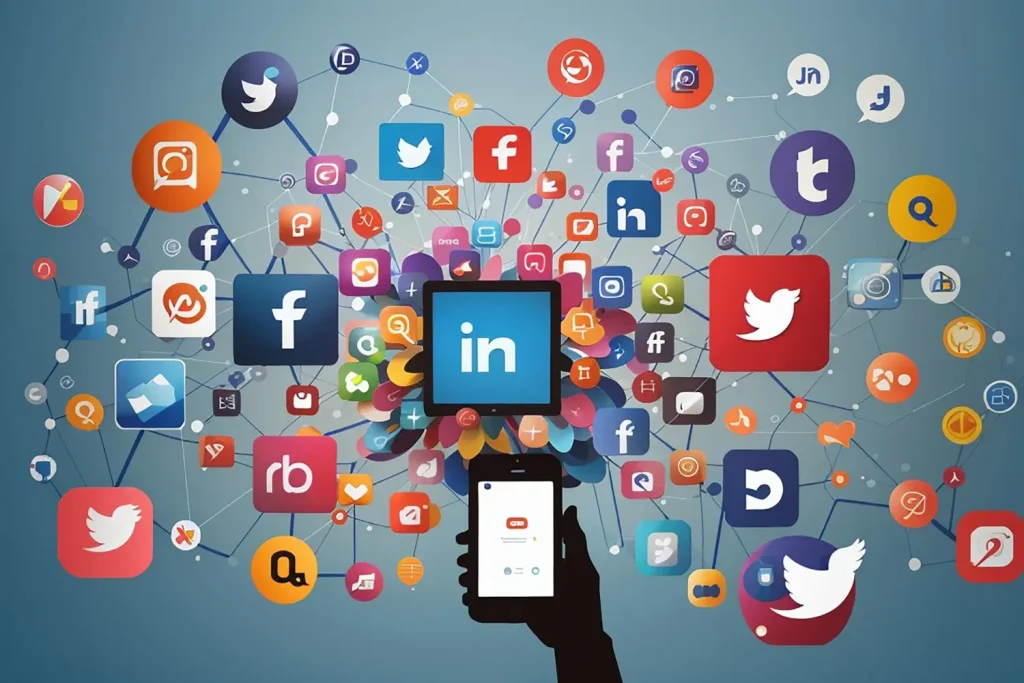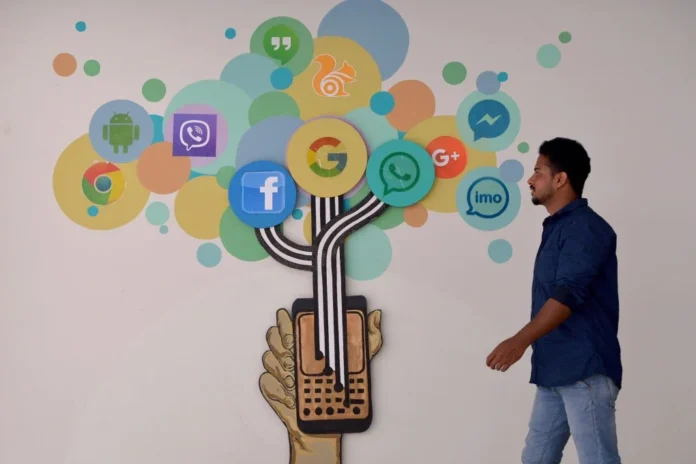A staggering 78% of Indians believe that social media influencers have a significant impact on politics, according to a recent report. This finding, which may come as a surprise to some, underscores the growing influence that online personalities wield over public opinion and political outcomes in India. With the rise of social media platforms such as Instagram, Twitter, and YouTube, influencers have moved beyond promoting products and services—they are now actively shaping the political discourse.
But this raises an important question: How is this influencer-driven political landscape affecting democracy in India?

The Rise of the Political Influencer
Influencers, particularly those with large followings, have become trusted voices for millions of Indians. Whether it’s fashion, lifestyle, or entertainment, influencers have built a loyal base that turns to them for advice, recommendations, and now, political opinions. As political discussions and campaigns have increasingly migrated to social media, influencers have found themselves in a unique position to shape the political landscape.
Many political parties and candidates have started collaborating with influencers to reach younger, tech-savvy voters, who might not engage with traditional political advertisements. From endorsing a political party to subtly hinting at which policies align with their followers’ interests, these influencers are subtly guiding public opinion.
But this phenomenon comes with its own set of challenges. The blurring lines between paid promotions and personal opinions make it difficult for followers to discern when an influencer is genuinely supporting a cause or being compensated for their support.
Why Do Indians Trust Influencers Over Traditional Media?
The report highlights a critical shift in the way Indians consume political information. Historically, traditional media outlets such as newspapers, television channels, and radio were the go-to sources for political news and analysis. However, with growing concerns over media bias, sensationalism, and political affiliations, many Indians—particularly the youth—are turning to influencers for their daily dose of politics.
The reasons are multifold:
- Authenticity: Influencers are seen as more relatable and authentic compared to mainstream media outlets. Their content is often personal, and followers believe they can trust these influencers to share genuine opinions.
- Accessibility: Social media provides an instant and accessible platform for influencers to engage with their followers in real time. Unlike traditional media, which often presents information in a formal or detached manner, influencers connect with their audience on a personal level.
- Interactive Nature: Unlike passive media consumption, social media allows followers to engage with influencers directly. This two-way interaction makes political discussions feel more democratic and inclusive.
The Dark Side of Influencer Politics
While influencers have brought new energy into political discussions, there is a dark side to this phenomenon. The very nature of social media—fast-paced, visually driven, and reliant on algorithms—can lead to the spread of misinformation and polarizing content.
Influencers, intentionally or unintentionally, can amplify false narratives or divisive rhetoric that polarizes their audience. Unlike traditional media, which is held to certain ethical standards, social media platforms lack comprehensive regulations, leading to unverified content going viral in a matter of hours.
Moreover, influencers with political affiliations or financial motivations may push agendas without full disclosure. With sponsored political content becoming more common, the integrity of the information shared by influencers can be compromised. This has led to rising concerns about the ethics and transparency of political influencers.
Are Political Influencers Eroding or Enhancing Democracy?
The power of influencers to shape political narratives has sparked a broader debate about the health of Indian democracy. On one hand, the ability of everyday people to share their political views online without the need for traditional media outlets is a testament to the democratization of information. Social media allows for more diverse voices and perspectives to be heard, fostering a more inclusive political conversation.
However, critics argue that influencers, driven by popularity and engagement metrics, may prioritize sensationalism over substantive political discourse. The result is an echo chamber where opinions are not challenged, and misinformation spreads unchecked. Additionally, the rise of sponsored content blurs the line between genuine political support and paid promotions, making it difficult for followers to discern the influencer’s true motivations.
Influencers and Elections: A Game Changer?
The impact of influencers on Indian politics is particularly noticeable during election seasons. Political parties are increasingly relying on influencers to mobilize voters, especially in urban areas. Platforms like Instagram and Twitter have become battlegrounds where political messages are strategically disseminated to specific demographics.
During the 2019 Indian general elections, several influencers were reportedly hired to endorse political candidates and parties. Whether it’s sharing positive messages about a candidate or critiquing opposition parties, influencers have become a powerful tool in election campaigns.
But with this growing influence comes greater responsibility. Influencers must be held accountable for the content they share, especially when it concerns something as significant as political elections. Without proper regulation, influencer-driven campaigns can easily become vehicles for propaganda, potentially undermining the democratic process.
Should There Be Stricter Regulations?
Given the rising influence of social media personalities in politics, many are calling for stricter regulations to ensure transparency and accountability. While traditional media is subject to strict regulatory oversight, social media influencers largely operate in a gray area. It is essential for platforms and governing bodies to create guidelines for influencers who participate in political campaigns, ensuring that they disclose sponsored content and avoid spreading misinformation.
The Election Commission of India (ECI) has already started recognizing the role of influencers and is working on updating regulations for social media campaigns. However, more needs to be done to ensure that influencers are not misused for political gains at the expense of the public’s trust.
Conclusion: The Double-Edged Sword of Political Influencers
The report that 78% of Indians believe influencers shape politics highlights the undeniable role social media now plays in the country’s political landscape. While influencers have democratized the dissemination of information and introduced fresh perspectives into political conversations, the dangers of misinformation, paid content, and biased narratives cannot be ignored.
The future of Indian democracy in the age of influencers will depend on how both influencers and political stakeholders navigate this new terrain. The key will be transparency, ethics, and a commitment to fostering healthy political dialogue. Whether influencers will ultimately erode or enhance Indian democracy remains an open question.

